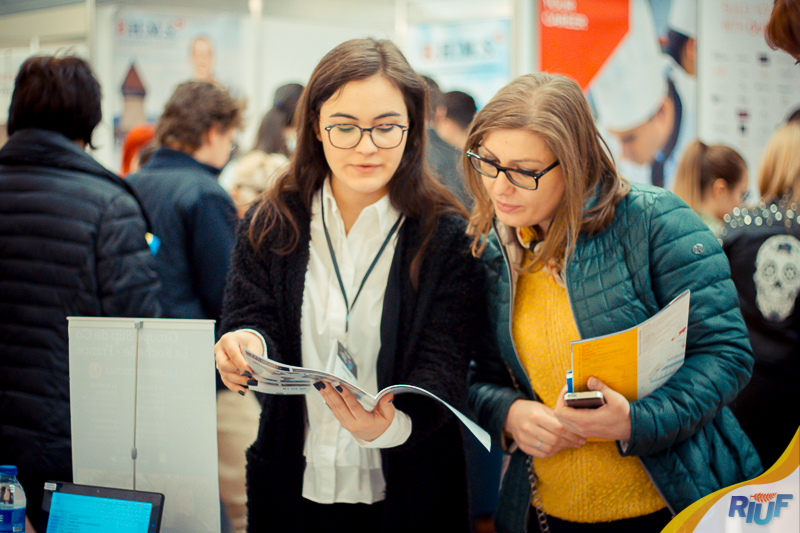The Importance of (Proactively) Engaging in Conversation at Fairs

It is widely known that cold-calling is never an issue in education marketing. And neither is proactively engaging in conversations with fair visitors.
Most prospective students are yet to decide about their academic future when visiting a recruitment fair. The average student is perhaps as willing to learn about programs and student life as he or she is shy to start a discussion with a university representative. We therefore believe that it is also the responsibility of the exhibitor to start the conversation. These active efforts may actually help you maximize the value obtained for attending a recruitment fair.
Here are three great examples of key moments to start conversing with visitors:
• Students are looking at the programs listed on roll-ups or hanging banners
• Students seem interested in taking a brochure or a freebie
• Students are searching for their registration form, likely looking to be scanned at your booth (should the fair offer a scanning system)
Close to 90 percent of all undergraduate prospects are studying in the 11th and 12th grades when attending a fair. With application deadlines around the corner, these students value all information they have access to – oftentimes without showing it. We encourage proactively engaging with these students during fairs to expose them to specifics about your offered degrees which will likely weigh heavily in their process of deciding where to study next.
A great way to begin dialogue is by asking a question. Since most conversations taking place during fair days last under 10 minutes, breaking the ice fast is key to getting the student excited about your offer. We have seen that visitors are much more responsive to current students, alumni and academics representing their universities than they are to marketers. Although having a more diverse team exhibit at fairs brings great added value, it can prove harder to manage. Make sure communication among your representatives is consistent and the following are paid attention to:
• Listening (not so much talking) helps you understand what students are actually looking for and lets you present the USPs relevant to their profile
• Questioning students helps you learn more about their interests and needs, and avoids monologues (which are rather unpopular with students)
• People buy from those they trust; therefore, building a relationship with the marketer they will later be in contact with is vital. Your student or academic might not be involved in the follow-up process at all and you will want your lead to be open to communicating with different contact persons
Regardless of the topics discussed, make sure your leads know you will be in contact at a later point. Keeping them engaged after the fair is of the utmost importance. A scanning system (should it be provided) may help you access the contact details of your leads immediately after the event. We advise you to start contacting prospective students eligible for your next intake as soon as possible for best results.
Remember that you are very likely acting as the first point of contact, and thus the face of the university and its programs to prospective students. Making a good impression will reflect positively throughout the follow-up and, eventually, the enrollment process.


Clear and correct information
Hi Leo,
Thank you for your feedback! We hope you find our articles useful.
All the best, The RIUF Team